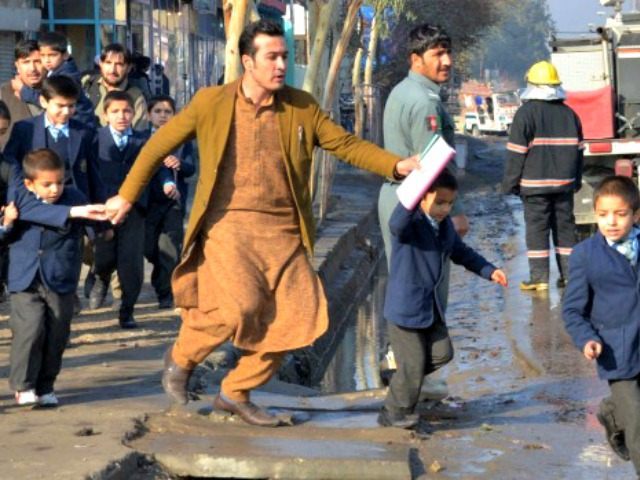The Islamic State (ISIS/ISIL) branch in Afghanistan has claimed responsibility for a suicide attack on the Pakistani consulate in Jalalabad, the provincial capital of Nangarhar, which has become the jihadist group’s primary stronghold in the country.
Wednesday’s attack on the Pakistani consulate has stoked “fears over the spread of the ultra-radical movement in Afghanistan,” notes The Sydney Morning Herald.
It came three days after Afghan President Ashraf Ghani visited the provincial capital and declared that ISIS “has no room in the Afghan society,” reports The Washington Post (WaPo).
“The attack showed a level of orchestration previously not seen from the Islamic State in Afghanistan, raising concerns that the group’s ability to carry out complex operations is increasing,” adds the report.
The three ISIS attackers and at least seven members of the Afghan National Defense and Security Forces (ANDSF), which include army, police, and militia units, died in the attack claimed by ISIS, which until now had refrained from striking high-profile Pakistani targets in Afghanistan, the Herald quotes unnamed Afghan officials as saying.
More than 10 people, including civilians, were reportedly wounded.
“The attack, the first in years to target Pakistani officials in Afghanistan, took place nine days after a similar assault on an Indian consulate in northern Afghanistan,” notes the Post.
Citing Atta Ullah Khogyani, a spokesman for the Nangarhar governor, WaPo reports, “The attack began about 8 a.m. when a suicide bomber targeted a police vehicle outside the Jalalabad consulate, clearing the way for two assailants to enter a building next to the compound.”
Afghan officials are quoted by the Post as saying that no casualties were reported among those inside the consulate.
“Our security forces say that the target of the attack was the Pakistani Consulate,” said Ahmad Zia Abdulzai, an aide to the governor of Nangarhar province. “The consulate has suffered some damages, but no one has been wounded or killed inside it.”
The branch of the Islamic State (IS) in Afghanistan is known as the Khorasan Province (IS-KP). In late January 2015, soon after President Obama claimed the ongoing U.S. combat mission had come to an end, ISIS officially announced its expansion into ‘Khorasan,’ an old name for the region that is largely in what is now Afghanistan, but also covers parts of Pakistan, Iran, India, and other surrounding countries.
ISIS reportedly asserted responsibility for Wednesday’s attack in a statement released online.
Last month, U.S. Gen. John Campbell, the top commander of American and NATO troops in the Afghanistan, warned that the Khorasan Province aspired to make the capital of Nangarhar, located in the eastern part of the country along the Pakistan border, their primary base.
His comments comport with the findings of the fairly new Pentagon report, which revealed that the branch has “seized pockets of terrain from the Taliban in Nangarhar Province” and is growing by recruiting “disaffected Taliban” and others.
Jihadists from the ethnic Uzbek minority in Afghanistan have been linked to ISIS. Afghan officials, Campbell, the United Nations, U.S. lawmakers who have visited Afghanistan, and the Russian military have all sounded the alarm on the growing number of IS-KP sympathizers, estimated to be up to 3,000-strong.
Pakistan has been accused by the United States and Afghanistan of providing sanctuary to terrorists. Current and former Afghan officials have particularly accused Pakistan’s intelligence agency (ISI) of fomenting violence in Afghanistan under the name of al Qaeda, ISIS affiliates and Taliban militants.
“This is a major concern for us if they carry out more attacks like this,” an unnamed Afghan security official reportedly said, referring to Wednesday’s attack. ”We have enough problems to deal with already.”
ISIS has been combating the Afghan government in addition to the Taliban for leadership and territory. It has managed to recruit former Taliban militants, disenchanted by the recent infighting among their fellow jihadists.
There has been a rise in Taliban-perpetrated violence since the U.S. and NATO forces transitioned from a combat mission to a train, advise, and assist role in January 2015, placing the ANDSF in the lead of security operations. The Pentagon has admitted the Afghan security forces are incapable of taking on the enemy without U.S. assistance.

COMMENTS
Please let us know if you're having issues with commenting.